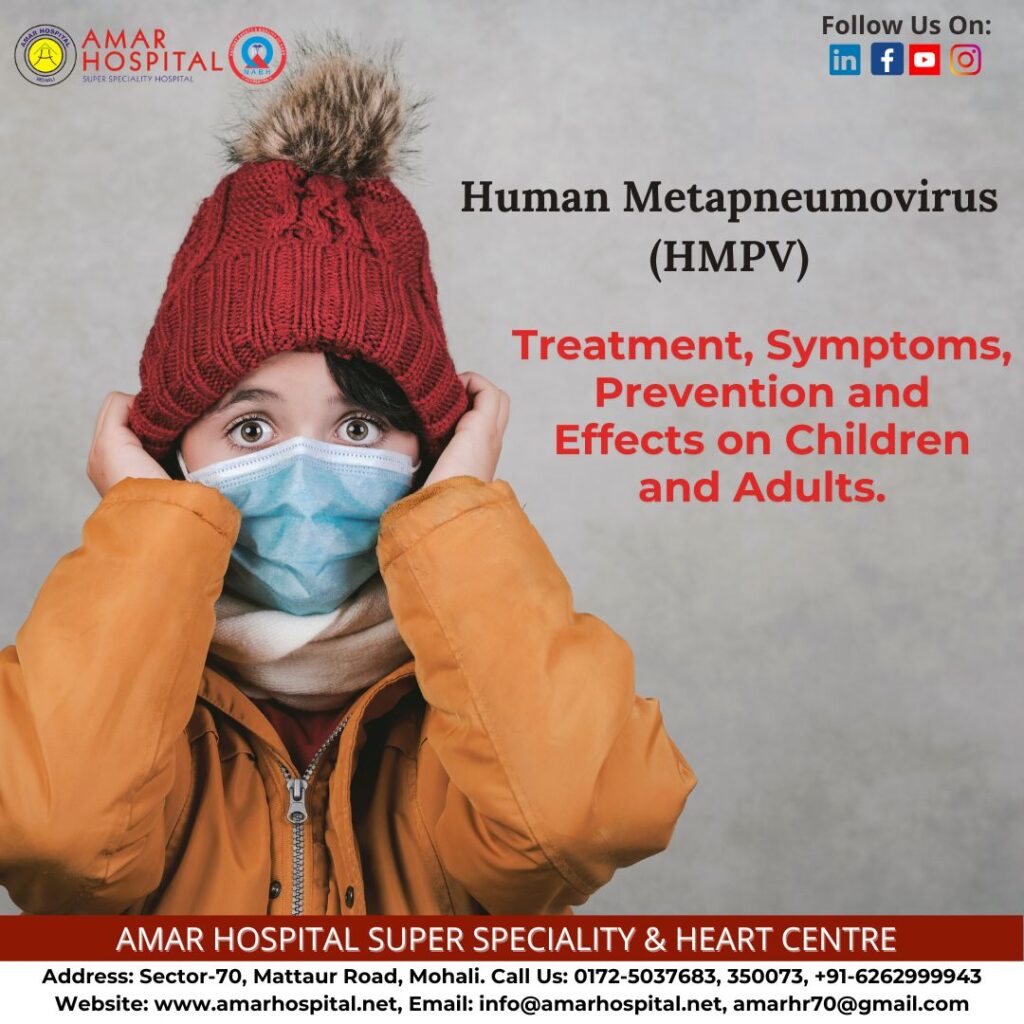Human metapneumovirus (HMPV) is a respiratory virus that can cause mild to severe infections. This RNA virus is part of the Paramyxoviridae family, which also includes the more well-known respiratory syncytial virus (RSV). First identified in the late 1990s, HMPV has become recognized as a significant pathogen affecting both children and adults, particularly in the context of respiratory illnesses.
Symptoms of HMPV Infection
The symptoms of HMPV can mimic those of other viral respiratory infections, making it challenging to diagnose without specific testing. Common symptoms include:
Coughing: This can range from a mild irritation to a persistent and debilitating cough.
Fever:Many patients experience a fever, which may accompany other symptoms.
Nasal Congestion: Similar to other upper respiratory infections, nasal blockage is often present.
Shortness of Breath: This is particularly concerning in vulnerable populations.
Fatigue and Muscle Aches: Many patients report a general feeling of malaise and fatigue.
In young children, the symptoms may manifest as wheezing and difficulty breathing, making HMPV a significant concern in pediatric populations. Effects on Children and Adults.
HMPV is known to affect patients across all age groups, though it tends to pose the most considerable risk to young children, the elderly, and those with compromised immune systems. In children, HMPV can lead to more severe respiratory conditions such as bronchiolitis and pneumonia.
In adults, it may cause a range of illnesses from mild upper respiratory symptoms to more severe lower respiratory infections, especially in individuals with underlying health conditions like asthma or chronic obstructive pulmonary disease (COPD). Hospitalizations occur, particularly during peak seasons, which often coincide with the winter months when respiratory viruses thrive.
Treatment Options
Currently, there is no specific antiviral treatment for HMPV. Management typically focuses on relieving symptoms and providing supportive care. Here are some common treatment strategies:
Hydration: Ensuring proper fluid intake is essential to help soothe irritation and maintain necessary hydration. Rest: Patients are encouraged to get adequate rest to allow the body to recover.
Over-the-counter Medications: Depending on symptom severity, medications such as acetaminophen or ibuprofen can be utilized to manage fever and pain.
Inhalers or Nebulizers: For those experiencing significant wheezing or shortness of breath, bronchodilators may be prescribed to ease breathing. Severe cases may require hospitalization, especially in infants and those with existing health conditions. In these situations, oxygen therapy and other advanced medical support may be necessary.
Prevention of HMPV
Preventive measures play a crucial role in reducing the spread of HMPV:
Hand Hygiene: Frequent handwashing with soap and water is essential.
Avoid Close Contact: Stay away from infected individuals, especially in crowded settings.
Disinfect Surfaces: Regular cleaning of commonly touched objects can limit viral transmission.
Face Masks: Wearing masks in high-risk environments may reduce exposure.
Immunization: While no vaccine is currently available, research is underway to develop one.
Conclusion
Human metapneumovirus is a critical respiratory pathogen that can impact individuals across the age spectrum. Understanding HMPV’s symptoms and treatment options is essential for timely diagnosis and management, especially for vulnerable populations. Awareness and education can help mitigate the effects of this virus in our communities. Individuals experiencing severe symptoms should seek medical attention promptly to ensure appropriate care.
For more information and resources, please contact to us at +91-6262999943 or visit at Amar Hospital Mohali, Mattaur Road, Sector-70, Mohali.
Stay informed and protect yourself and your loved ones during respiratory illness seasons.


